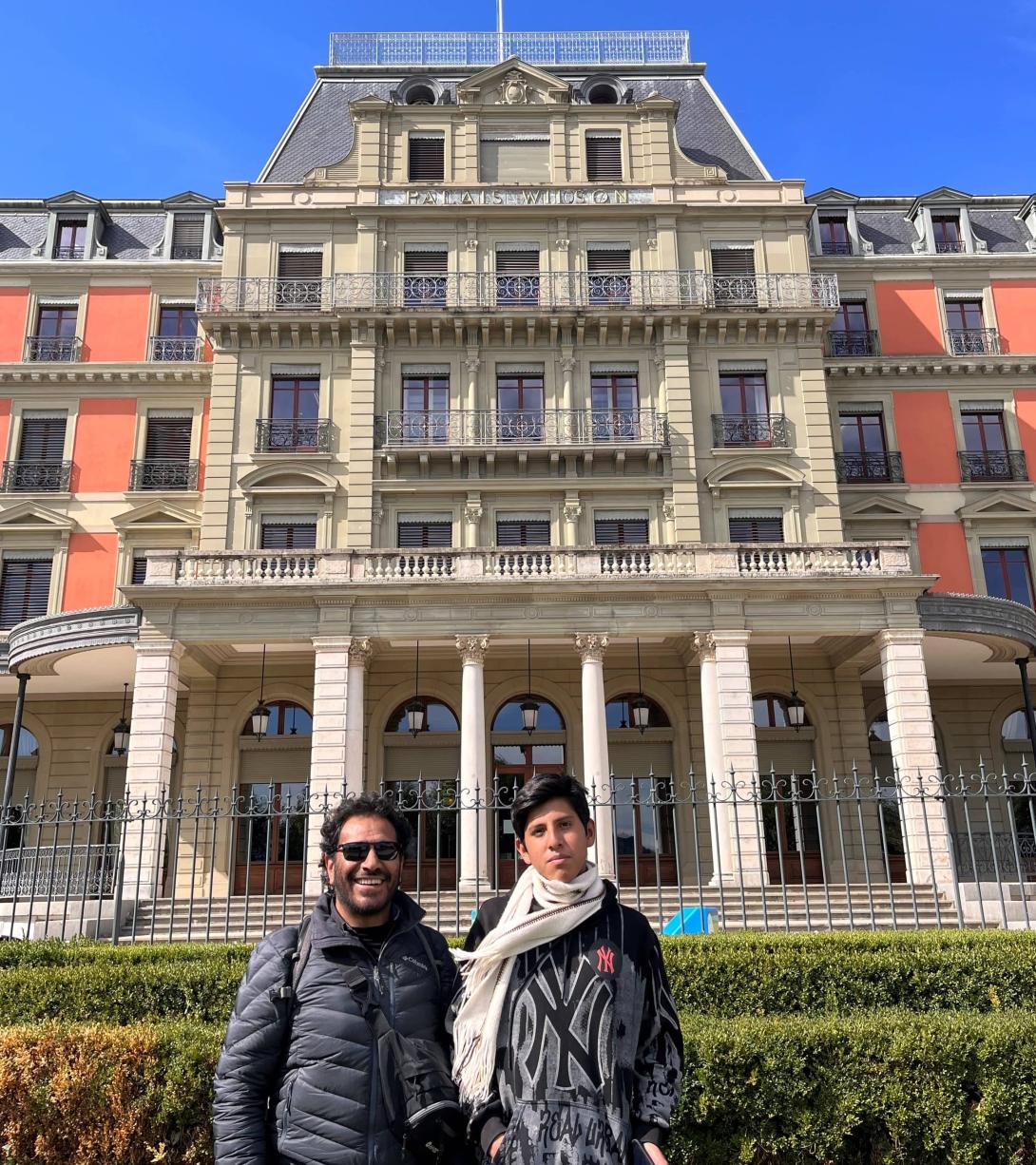

In September, we welcomed Geneva Erick, a young Peruvian aged 17, and Jorge, head of Qosqo Maki, our local partner in Peru. They came to talk to the UN Committee on the Rights of the Child* during Peru's pre-session, which will shortly be examined by the experts. Qosqo Maki works closely with children and young people who, like Erick, are in street situations in Cusco.
Last July, we submitted an alternative report to the Committee on the Rights of the Child with our local partner Qosqo Maki and the "let’s make the invisible visible" collective. During the pre-session, Erick and Jorge were able to talk to the experts and explain the specific needs of children in street situations and the many violations of their rights.
"We are victims of prejudice because we are children and adolescents in street situations." A young man in street situations, Peru
Overview of our report
In Peru, it is difficult to obtain precise data on the number of children in street situations, as they are not officially recognised as such. They are often identified as out-of-school children or as child workers. According to official numbers, more than 670'000 children and teenagers are not enrolled in school. These children often work and a large proportion of them are in street situations, but their total number in Peru remains unknown. We therefore recommend that the Peruvian governement carry out a census and map of children and teenagers in street situations to be able to take appropriate action to the needs of these children.
Children and teenagers in street situations are particulary exposed to violence and criminal gangs. Unfortunately, they are often unable to seek protection from the police. Police officers are unaware of the harsh reality of these children and their rights, and criminalise them instead of protecting them. Recently, the Peruvian government amended the penal code for adolescents to stem the problems of drug trafficking and delinquency. From now on, 16 and 17-year-olds can now be charged as adults in the criminal justice system. We are very concerned about this situation, which will have serious consequences for teenagers in conflict with the law, particularly those in street situations.
« We are victims of abuse and mistreatment by the authorities, often the police don't want to listen to us and simply place us in police custody without the right to be defended. » A young man in street situations, Peru
Moreover, children in street situations have little access to education and vocational training. Admission requirements and schools are not adapted to their situation. Some children do not have birth certificates or identity papers, which prevents them from enrolling in a public school. The time it takes to obtain this document deprives them of an education that is essential to their personal development. In addition, without a stable place to live, children and teenagers in street situations find it difficult to keep up with the pace of schooling, their main concern being to find food and shelter. Unlike the Peruvian government, Qosqo Maki offers an alternative form of education, where teenagers in street situations learn life skills through their interactions, providing learning that is better adapted to their reality.
Following these discussions between civil society and children's rights experts, we are now awaiting the Peruvian government's review, scheduled for early 2025, to find out what the Committee on the Rights of the Child's final recommendations will be to the Peruvian government.
*What is the Committee on the Rights of the Child ?
A body of 18 experts responsible for monitoring compliance by States Parties with the 1989 Convention on the Rights of the Child. The Committee regularly examines these States, which must submit a report on the situation of children's rights in their country.
